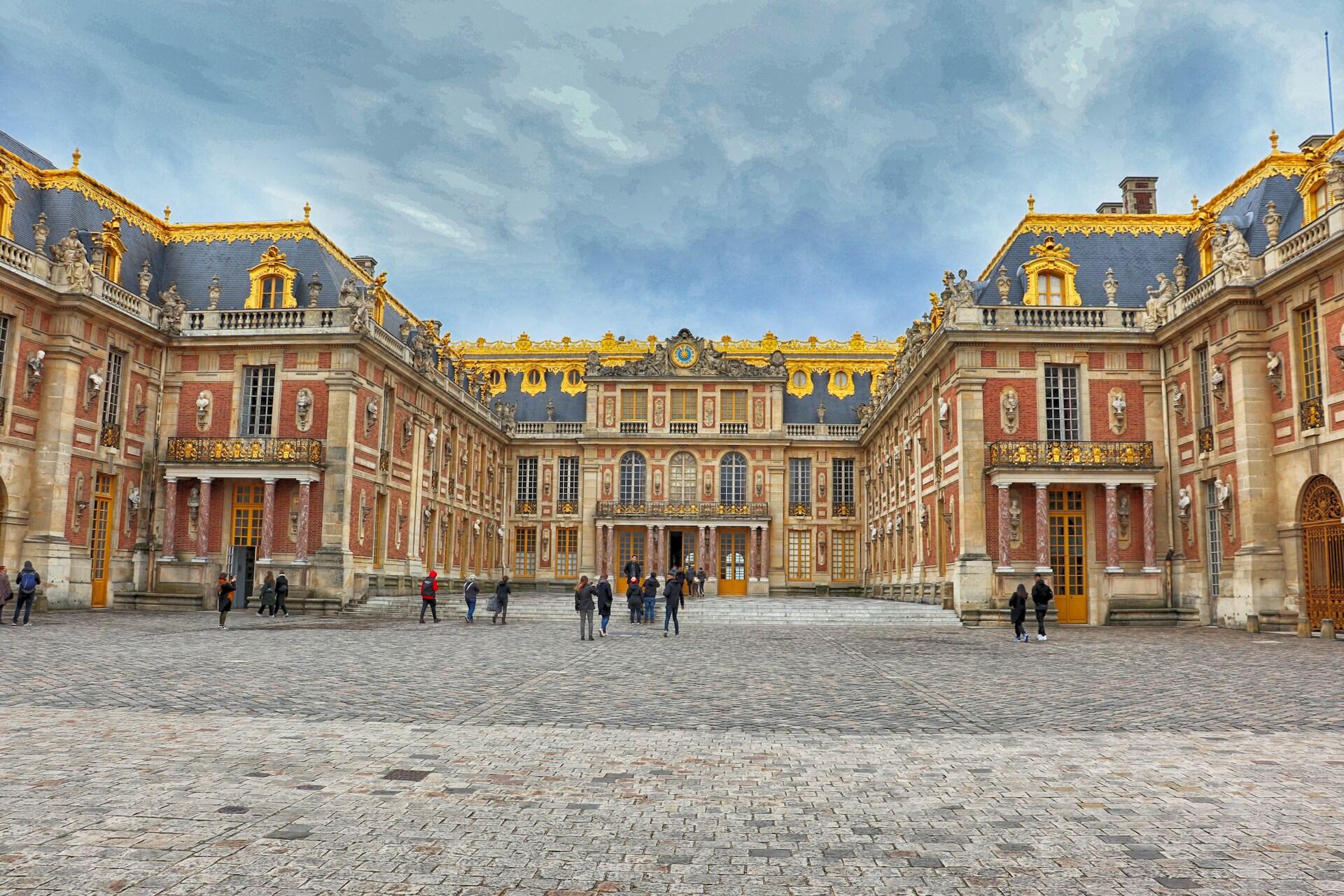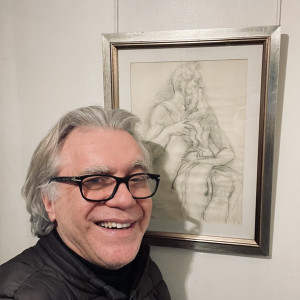People watch movies for all sorts of reasons: because they feature their favourite stars, for entertainment, and to learn things. Regarding movies about Versailles, or anything to do with the French Revolution, learning from films can be tricky. Luckily, these titles offer different perspectives on this revolutionary event.

Marie Antoinette - 1938
Film Synopsis
Young Maria's mother declares she will wed the future French King. She is excited about her new role, but soon discovers the treachery of the French court. The type of deceit that she soon takes part in.
What This Film Got Right - and Wrong
The film's costume designer travelled to France to research the costumes, sets, and props. While there, he spent a fortune on materials to recreate the period's lavish dresses and rooms. As a result, this film's costumes remain the most expensive in film history.
This movie relies heavily on the actual smear campaigns that brought about Marie Antoinette's tragic end. It reflects historical events as they happened, but completely misrepresents her. Discover the truth about Marie Antoinette's trial and execution before settling in to watch this film.
Why This Movie Matters
This film is based on the 1932 book by Austrian author Stefan Zweig. It's unclear how much poetic licence he took when writing his work, and equally murky how much the film differs from the text.
More importantly, today's historians have been working to restore Marie Antoinette's legacy. That entails disproving much of what was said about her and her reign. Including that infamous "Let them eat cake!" line.
Danton - 1983
Film Synopsis
During the Reign of Terror, lawyer George Danton returns to Paris. Once an associate of Maximilien Robespierre, the two are now on opposite ends of the political spectrum. Robespierre first tries to persuade, then sets out to destroy his former friend.
What This Film Got Right - and Wrong
Historical records show that Robespierre was indeed that cunning, ruthless, and power-mad. Most of what we know about Danton comes from second-hand accounts, as he left few papers behind.
Opinions of him are split between him being an opportunistic scoundrel, and a noble revolutionary fighter. This film chooses the second path, painting him only in patriotic colours. It's difficult to capture the turmoil and fear of those times, so viewers might forgive the film's sympathetic tone.
Why This Movie Matters
Regardless of those factual variations, this is a top movie about French Revolution. As you watch it, keep in mind that the characters are a little one-dimensional. And that France's Reign of Terror was far more brutal than what you'll see on your screen.
A Tale of Two Cities - 1935
Film Synopsis
A young woman brings her father to England to recover from 18 years in the Bastille Prison. While underway, they meet a young man who has renounced his aristocratic French background. Unfortunately for him, his uncle exercises the law's harsh grip to see him punished for treason.
What This Film Got Right - and Wrong
This film has been made and remade (in 1958 and 1980), but none of those versions comes close to this masterpiece. The story itself is fiction, so its historical representation matters less than presenting the story.
Why This Movie Matters
It isn't about the French Revolution, but everything you need to know about that terrible time underpins this story.

Farewell, My Queen - 2012
Film Synopsis
It's the last days of the French monarchy, and the country is in turmoil. The king and queen have little time to arrange matters for themselves. Still, the queen takes the time to ensure a member of her staff will be safe. For a more guided approach, try an online French teacher.
What This Film Got Right - and Wrong
This is one of the few films that dwells on what the French Revolution might have been like for ordinary citizens. It features a queen, but she's not the main character.
Based on the novel by Chantal Thomas, the story takes substantial liberties with the historical record. It also insulates the audience from the terror of those times, by focusing on the fictional story.
Why This Movie Matters
Most films about the French Revolution focus on either the royalty, or the revolutionaries. This title spotlights the people in the middle. Those who depend on the monarchy for their safety and to earn their living.
Brotherhood of the Wolf - 2002
Film Synopsis
As the French Revolution rages outside his château walls, a Marquis writes his memoirs. They describe a time, 20 years back, when a menacing beast terrorised the province. We see the action in a series of flashbacks, as the story of treachery and terror unfolds.
What This Film Got Right - and Wrong
There was, indeed, a beast of Gévaudan, that terrorised a province in South-central France between 1764-67. The legend's timing, just as discontent was growing into what would be the French Revolution, makes a great backdrop for this fantasy tale.
Otherwise, the story is pure fiction. It includes extended fight scenes, Martial Arts, and secret societies. Still, it's about the struggle for power and equality. Though it's set roughly 20 years before the French Revolution, it captures the spirit of those times.
Why This Movie Matters
Like the previous film on our list, this story is neither about royalty, nor revolutionaries. It's about ordinary people, and how religion impacted society's rules in those days.
Also, it's far from the typical historical fare. Primarily a horror film, it attracts viewers for the thrills and action. Indeed, this title is still one of French cinema's top horror movies of all time.
The Lady And The Duke - 2001
Film Synopsis
A Scottish courtesan with high-powered friends is cast adrift in the aftermath of the French Revolution. She is an outspoken royalist, in a time when people are pushing back against the monarchy. She helps a high-level aristocrat escape, putting herself in danger.
What This Film Got Right - and Wrong
This movie follows Grace Elliott's memoirs of happenings at the time. Though connected to power through her social liaisons, her privilege came under threat as the revolutionaries abolished the monarchy.
Why This Movie Matters
But there's a reason it was called The Terror.
Lucy Russell, speaking about her role in this film
Critics and audiences found the film's violence distasteful and excessive. Some complained that it amounted to royalist propaganda.
Still, the best stories are the ones that make us think, and look for more information. This movie is both thought-provoking, and discussion-worthy.
The Scarlet Pimpernel - 1935
Film Synopsis
Sir Percy Blakeney is a wealthy baronet from England. He and his wife live in France, in the time just before the Reign of Terror. As trouble brews, he begins living a double life. He's a fop and courtier by day, and a member of a secret society to save aristocrats by night.
What This Film Got Right - and Wrong
Like a Tale of Two Cities, this story has been done and redone, as a musical, a British television series, and a movie. Like the Dickens tale, this version is the best of them all.
Much of what this film got right is down to it being from cinema's Golden Age. In that era, studios put a lot of money and effort into making sweeping epics, and into reproducing authentic sets and costumes. Otherwise, the story takes generous detours from the historical record.
Why This Movie Matters
The French Revolution came about because people were fed up with the bloated aristocracy forever trampling on them. Thus, to anyone with revolutionary sympathies - then and today, rescuing aristocracy is distasteful. Still, we can credit it happening, at least once.
This movie is purely fictional; we have no evidence of any secret society to rescue the rich. But, once again, this story opens the door to fascinating discussions. This topic is as relevant today as it must have been during the French Revolution.
Marie Antoinette - 2006
Film Synopsis
A naive, charming 14-year-old girl is sent from her home, to forge an alliance with another country. This future queen falls prey to schemes meant to keep her in trouble. Furthermore, with no guidance, she indulges her most extravagant tastes. This causes widespread resentment, and royalty's ultimate downfall.
What This Film Got Right - and Wrong
Director Coppola films Marie Antoinette through gentle, sympathetic lenses. That perspective is very much in line with revised historical thinking about France's last queen.
This work's biggest failure is introducing modern elements. We understand what Ms Coppola intended: to showcase the queen's daring spirit. Still, it is jarring to see Converse-wearing feet paired with lush gowns and period costumes.
Why This Movie Matters
Seeing this queen in a bad light is one of the consequences of the French Revolution. The gossip, rumours, and false accusations that led to her death persisted for centuries. It's about time we consider her loneliness, and her life in a world where everyone used her, but nobody valued her.
All these movies make me think that:
Summarise with AI:















